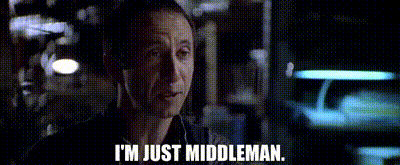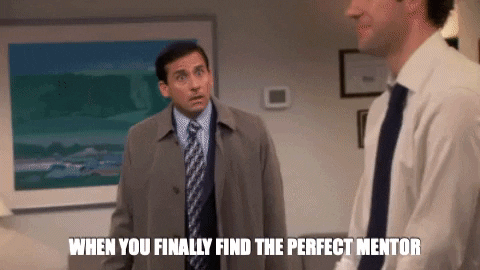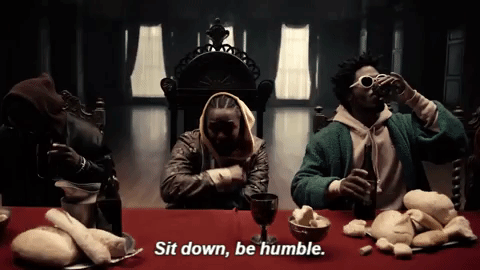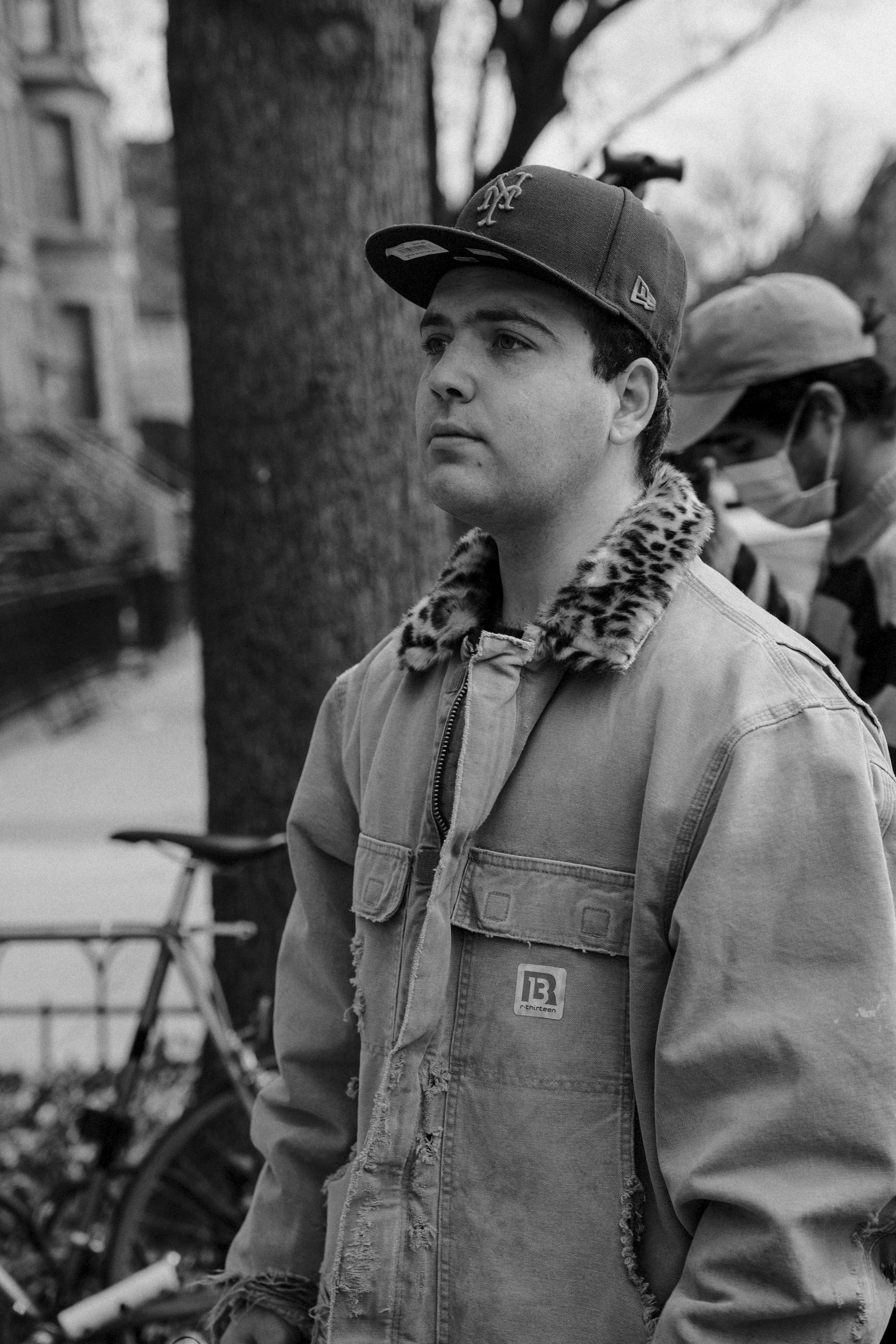Navigating the world of music video director representation as an up-and-comer is not easy. Nailing down exactly what to do next to propel your career, or even just decoding exactly what having a rep entails, is no joke. Luckily, you’re not the first to try to figure this out — Resolve executive producer and director Chad Tennies knows what you’re going through. If you’re looking to take the next step in your directorial journey and want some insight from someone who’s been there, read on for our take on how to do it.
What A Rep Does
The job of a directors' representative is to assemble a roster of talent and find potential new clients. Traditionally, a director’s representative is your connection to production companies and agencies. They’re the one to send work your way, as well as pitch you to potential collaborators. Essentially, they’re the middleman between you as a director and the companies you want to work with.
The benefit of having a rep is that they can open doors for you by leveraging their network to get you in the right place with the right people. The drawback is that they often pull fees for work you do — including work you do with people they didn’t connect you with. Additionally, if you’re just getting started, your rep may not be in a position to get your gigs that will truly help you grow. Especially if you’re working with a well-established rep, they may be networking with people looking for equally established directors, which doesn’t work in your favor as someone a little greener.
Though a traditional rep may work for you, there are other options. For example, working directly with a production company can be a better fit, especially when it comes to opening doors and expanding your clientele, your network, and your access to jobs. You could even set out on your own, but having that proverbial stamp of approval or co-sign from an agency or company can boost your chances of getting gigs. No matter who you turn to for music video director representation, make sure it's someone who is 100% invested in your growth.

How Resolve Does It
Remember how we said a rep is a middleman? The way we do it, we cut that part out. Resolve partners with up-and-coming directors to foster new talent and teach them the ins-and-outs of the industry. “When I was younger I really valued the mentors in my life, whose mistakes I could learn from,” says Chad. “I've been working in this field for 15 years now, and I've definitely made my share of mistakes. With that comes expertise and guidance that I can now offer newer directors. That’s true for all of us at Resolve.”
We also make it a point to invest in our directors. By funding their projects and putting resources in their hands, we enable them to grow creatively and build their reels and repertoires — which ultimately means that they’re able to charge a higher rate in the long run. “We believe that if we are there to support them in the beginning, it will pay dividends down the road — and I’ve seen that be true in many cases,” says Chad. We also invest time and effort into their current clientele, by growing and and scaling directors’ existing relationships with clients — something we know is extremely worthwhile.

Unlike a traditional rep, we don't pull a fee solely for representation. “If I'm merely connecting someone via an email, like what value am I really bringing here?” notes Chad. “That's why we have a hybrid model of a production company as representation. We’re a partner that shops you around and helps you win business and also helps produce the project and bring it to life. ” Our stance is that it’s more important that we get you the work — that’s where the real money is.
We're also non-exclusive — no giant contracts with a bunch of paperwork and non-compete clauses here. “We want what's best for our directors,” says Chad. “We want them to be able to thrive and work on projects with others if that makes the most sense for them and their career. We make our money producing, but if there is a better or more capable partner for the project we will always support that. Ultimately, it's our job to be the first and best choice for them.”
It’s All About Relationships
Arguably the most important thing we do with directors is focus on building solid relationships with them. It’s no secret that those relationships are absolutely essential to making it in this industry. “People shop with who they know and like, and many deals are done on the metaphorical golf course,” says Chad. “ If you have strong relationships, you’re more likely to be a part of those conversations.” As a company, we leverage our strong relationships with large clients and knowledge of inside information that is rarely included on client briefs to help our roster win jobs. It’s not only about the relationship we build with our directors, but the relationships they are able to tap into through us. As you’re starting out, make sure that you’re paying attention to fostering those professional connections — you never know what could come of it in the future.
Versatility Is Key
In our experience, we’ve seen that the directors who are able to grow the fastest in this field are the ones who can wear many hats on set: someone who can direct, shoot, edit, and more. If you can go out and do everything yourself, you’re already way ahead of the game. Be sure to brush up on your skills in as many areas as you can so you can be a well-rounded candidate for music video director representation wherever you go. There are always exceptions to the rule of course — if you’re not that type of director, it’s okay. “When we’re working with a director as their production company/rep, we build a team around them that compliments their style and takes their project to the next level.”

Manage Expectations — Including Your Own
It can be tempting to get your hopes up while finding music video director representation. After all, it's easy to think that partnering with someone is a surefire (and quick) path to success. “Sometimes it takes time to get some traction, and though it's frustrating, that’s just how it is,” says Chad. “Recognize that it takes time and effort to grow and make a name for yourself, and think about your long-term goals, not just what you want in the immediate future.” Plant the seed, but be patient and proactive while it grows.
It’s also important to remember that there's a lot of ways to measure progress and success in this industry. It’s not just about the amount of videos you have under your belt — it’s about getting your name out there. “If someone loves your work, but your style doesn’t fit their current project, don’t think of that as a failure,” says Chad. “It’s actually a huge win — you're on the radar, and they know your name now.”
Managing expectations goes for your relationships with potential partners and clients as well. Remember not to agree to anything you can’t follow through with, no matter how good it sounds. “Under-promise and over-deliver is definitely the name of the game,” says Chad.
Ask Questions
Asking the right questions will get you the answers you need. Chad recommends checking with potential partners about exclusivity, restrictions around your work, and transparency with fees, and ask them to elaborate on their network and the benefits they can offer you. Make sure you have as clear of an idea as possible of what a collaboration will look like between you and them before making a decision. “The relationship between a director and their representation needs to be mutually beneficial,” says Chad. “If it's not benefiting you, then you should break ties on a good note.”

Be True To Your Style
There are a lot of fish in the directorial sea, but only one you, so make sure you are representing yourself uniquely and accurately. It’s essential to develop a personal brand that people can recognize as yours — having a distinct style and aesthetic will catch people’s eye and help them remember your work. Remember: you can still be versatile while staying true to your essence.
It may sound basic, but it’s also essential to have a great reel — better yet, have multiple cuts for different goals. “How you cut things together can massively affect the impact of the work,” notes Chad. “It’s like cooking — the same ingredients, cooked differently, can make a completely different dish.”
Stay Hungry + Humble
As you’re grinding, try to come back to what made you want to break into this industry in the first place. Keeping your passion for the work at the top of your mind will keep you inspired and motivated. And remember to continue to put yourself out there and stay busy. “Take as many jobs as you can,”says Chad. “Work with as many people as you can. Get as much work out there as you can. Continue to shoot, shoot, shoot.” While you’re out there on set, a good way to make a name for yourself is to be a team player, even when it means doing menial tasks. “Always be willing to get your hands dirty,” says Chad. “That’s how we do it at Resolve — no matter your title, no one's above or below any task.”

